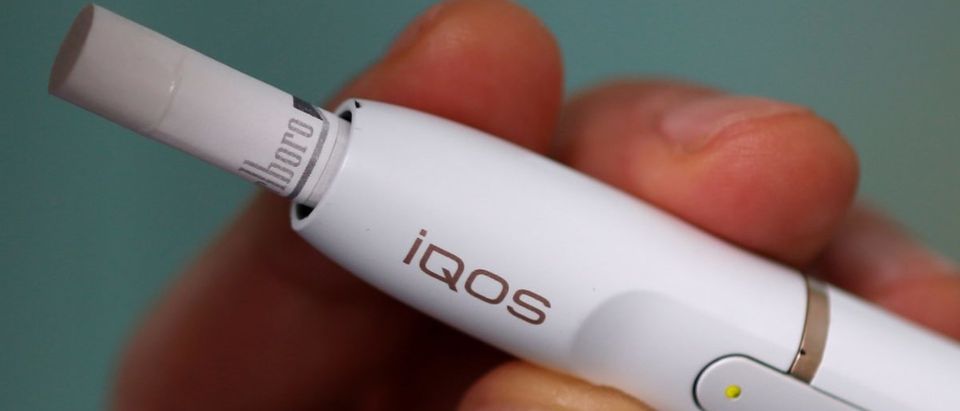Cigarette sales are plummeting in Japan at an “unprecedented” rate as smokers turn in droves to alternative technologies that drastically cut health risks from combustible tobacco.
Japan Tobacco Inc. revealed Wednesday the company is expecting a massive decline in cigarette sales due to the rapidly growing popularity of heat-not-burn products developed by Philip Morris International (PMI) and British American Tobacco (BAT). The company now expects to sell 4 billion less cigarettes in 2017 than they estimated at the beginning of the year, a 13.4 percent drop from the same time a year ago, reports Reuters.
PMI’s iQOS debuted in Japan last year before being introduced in additional countries, and has taken over a substantial share of the Japanese tobacco market in a relatively short amount of time. BAT is also competing in the country with a similar heat-not-burn device called the “glo.” Japan Tobacco on the other hand did not bring a reduced-risk product to their market until July of this year, and their sales are suffering as a result.
“The rate of decline in cigarette sales in Japan is simply unprecedented,” David Sweanor of the Center for Health Law, Policy and Ethics at the University of Ottawa told The Daily Caller News Foundation. “We have known for decades that a great many people who smoke cigarettes want to reduce their health risks. But when the only option is total abstinence from cigarettes, tobacco and nicotine, the success rate of a quit attempt has been extremely low. Now we have substitutable non-combustion products with switch rates that are very high. The result is that personal intentions get turned into personal successes.”
The decline in smoking appears to be sustainable, noting the rate of people transitioning to heat-not-burn devices is actually accelerating, Sweanor says. The reduction in combustible tobacco use is happening across the region as PMI and BAT expand their reach. PMI announced Aug. 24 that approximately 3 million smokers in Singapore have transitioned from cigarettes to the iQOS. The company says more than 232,000 smokers across the world, or roughly 8,000 people a day, ditched cigarettes for the iQOS in July.
Thanks to the popularity of iQOS, the company’s “reduced risk products” went from generating 1.8 percent of worldwide revenue in 2016 to 9 percent by the second quarter of this year, according to the Financial Times.
Despite the promising news on alternative smoking technologies and their potential to reduce smoking-related illnesses and save millions of lives, health care bodies remain vehemently opposed to the products. The World Health Organization (WHO) recently helped derail efforts to expand access to reduced-risk products in Turkey.
Efforts to spread misinformation on alternative smoking options that minimize their benefits simply deny smokers less harmful options while tacitly encouraging them to keep using a more dangerous product, public health advocates say.
“The surprise is not that consumers welcome the opportunity to forgo inhalation of the products of combustion, but that any health agency would be opposing rather than empowering smokers who want to improve their health,” Sweanor told TheDCNF. “The failure to jettison moralistic abstinence-only policies not only sustains smoking and perpetuates 20,000 global deaths a day from cigarette smoking, but violates basic public health ethics. The WHO should aspire to more than protecting the horrendously deadly cigarette status quo.”
The majority of cancer-causing chemicals and toxins from smoking are released through combustion, therefore smokeless tobacco and vapor products reduce harm caused by cigarettes to the user by more than 90 percent.
All content created by the Daily Caller News Foundation, an independent and nonpartisan newswire service, is available without charge to any legitimate news publisher that can provide a large audience. All republished articles must include our logo, our reporter’s byline and their DCNF affiliation. For any questions about our guidelines or partnering with us, please contact licensing@dailycallernewsfoundation.org.



